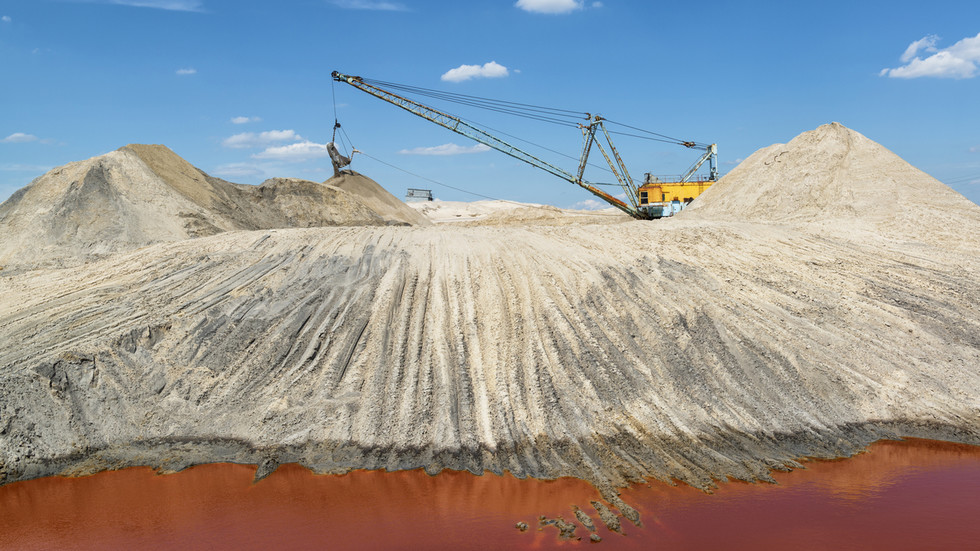
For free real time breaking news alerts sent straight to your inbox sign up to our breaking news emails
Sign up to our free breaking news emails
Israel has defied international concern and ordered the partial evacuation of Rafah – the last refuge in Gaza, where 1.4 million desperate civilians are braced for an impending ground assault the United Nations warned could lead to “bloodbath”.
Western leaders expressed dismay that Israel might press ahead with an invasion of the tiny area despite a last-ditch bid by Hamas to secure a temporary ceasefire.
Rishi Sunak said he was “deeply concerned... given the number of civilians that are sheltering there,” while Sir Keir Starmer said the Israeli offensive “must not go ahead.”
Israel says Rafah is the last significant Hamas stronghold, but aid groups said leaflets and text messages ordering tens of thousands of civilians to leave the eastern areas were “unlawful and alarming”.
As residents began to flee the area, loading up cars and animals with their possessions, Hamas announced it has accepted an Egyptian-Qatari plan for a cessation of the conflict. But Israeli officials warned the plan “is not the framework Israel proposed”.
Palestinians greeted possible news of a last-minute ceasefire with jubilation, with some dancing in the streets late on Monday. But it was far from clear if Israel would reciprocate.
Israel is under intense pressure to accept a ceasefire, not only from Western allies but also from the families of kidnapped Hamas hostages who protested in Tel Aviv late on Monday demanding a halt.
It was also unclear how soon Israel might begin its invasion. Civilians were ordered to move north to an “exptanded humanitarian zone” in al-Mawasi around 12 miles away.
As crowds moved through the streets, the Israeli military launched terrifying strikes in eastern Rafah.
The shared photos crowds walking en masse, and lines of cars, with mattresses strapped to the roof. Abu Ismail, 68, displaced from the north of Gaza, said families came with anything they could carry.
He had to leave part of his family back in east Rafah as there was not enough space on the cart he used to flee.
“I have young children and grandsons; we are all really afraid. I saw people walking, others by carts, others by cars, carrying their blankets and food. I couldn’t bring everything we needed,” he said, adding that Israel’s bombardment has killed seven of his family members including his brother, and nephews.
Eman Yehiya ,24, whose mother was killed in the 2008 war with Israel and had had to evacuate five times since October, said there was tank shelling and air raids on Monday.
“My father is trying to find an empty place for us to build our tent in the west of Rafah - and we are scrambling to get our belongings together,” she told The Independent. “We were expecting a ceasefire deal and were very hopeful and then everything collapsed. We keep moving, searching for safety.”
The prospect of yet more mass civilian casualties has worried even Israel’s closest ally and largest weapons supplier, the United States, as well as neighbouring Egypt.
Joe Biden telephoned Benjamin Netanyahu on Monday to reiterate American worries.
“We continue to believe that a hostage deal is the best way to preserve the lives of the hostages, and avoid an invasion of Rafah, where more than a million people are sheltering. Those talks are ongoing,” John Kirby, the US National Security Council Spokesperon said.
Israel launched its heaviest ever bombardment of Gaza and a punishing siege in retaliation for 7 October bloody attack by Hamas, a US and UK designated terrorist group, on southern Israel.
There militants killed over 1200 people and took at least 250 hostages, dozens of which remain inside Gaza their fate unknown.
Since then, Palestinian health officials say that Israel’s bombardment has killed than 34,000 people, half of them women and children.
The UN has warned restrictions on aid is sparking a “man-made” looming famine saying that half of the 2.3 million strong population are now facing catastrophic levels of hunger.
It is now concerned a military operation into Rafah could lead to a “bloodbath”. “The potential impact of such a military operation is catastrophic, given the level, scope and scale of the destruction that Gazans have already witnessed across the Strip for the last 7 months,” said Tamara al-Rifae, a spokesperson for the UN’s Palestinian Refugee agency UNRWA.
She said both Rafah and Kerem Shalom land crossings to Gaza were closed, crippling the little delivery of humanitarian aid.
Civilians in Rafah told The Independent prices of some foods had doubled overnight.
Jan Egeland, head of Norwegian Refugee Council (NRC), said Israel’s relocation orders qualified as forcible transfer and were unlawful “and alarming”.
“Any Israeli military operation in Rafah – which has become the largest cluster of displacement camps in the world – will cause potential mass atrocities,” he added.
Jordanian foreign minister Ayman Safah warned “another massacre of the Palestinians is in the making.”
He wrote on X: “Failure to prevent the massacre will be an indelible stain on the international community. Too many massacres have been allowed. Enough.”
Sources close to the Israeli government blamed Hamas for the floundering ceasefire talks, saying they were refusing to back down from demands for an end to the war.
In Rafah, Om Omar, 45, whose family is originally from Gaza City and was forced to flee in another Israeli evacuation order last year, said they loaded the family onto the back of a truck with some clothes, mattresses, and a few bags of flour.
“We have evacuated four times already since October - we are all terrified and worried. We are just trying to find anywhere to pitch our tent.”

 9 months ago
29
9 months ago
29









